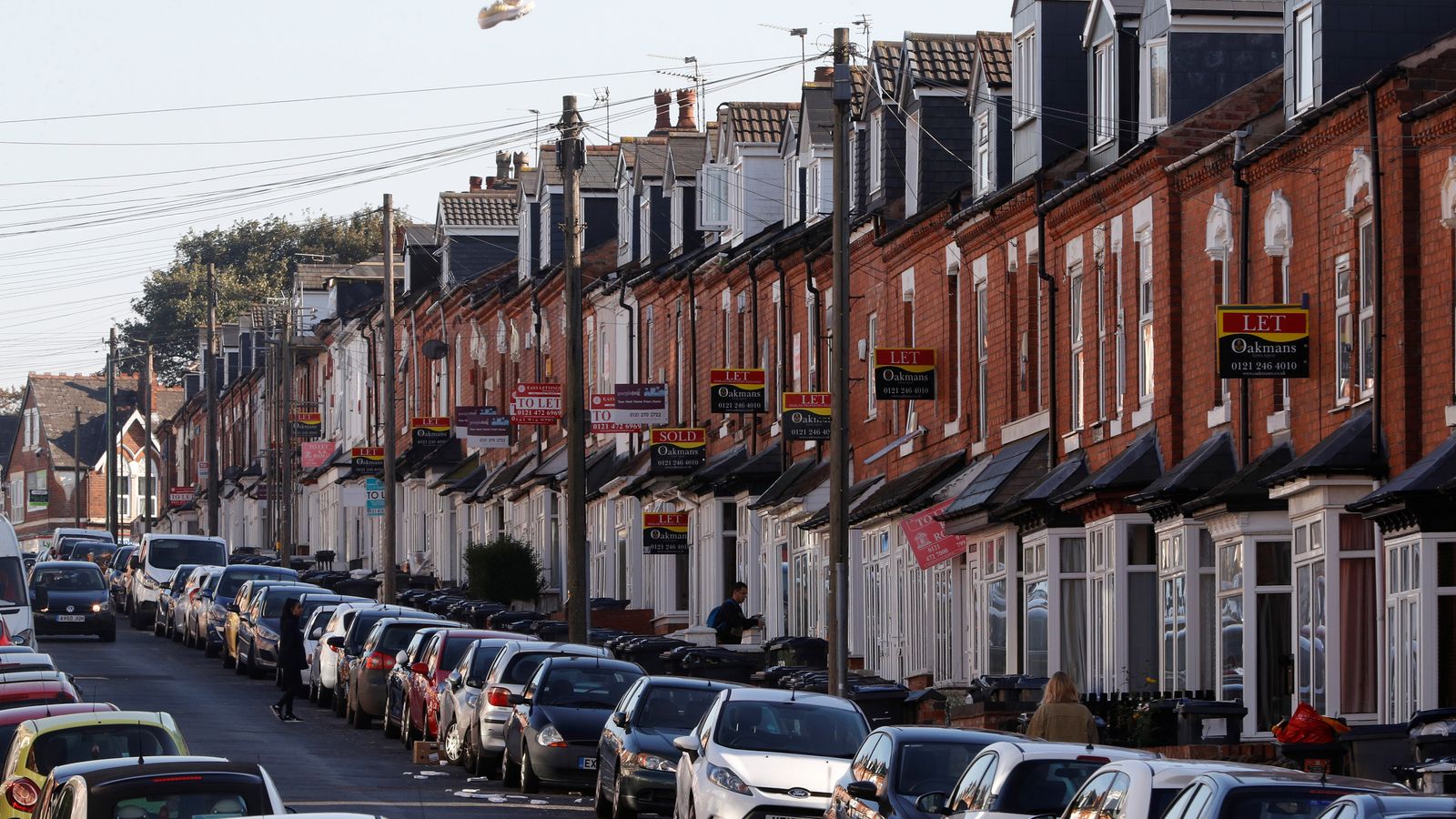Mortgage approvals at lowest level since early months of pandemic

The number of new mortgages approved has dropped for the fourth month in a row, to a low not seen since the early days of the pandemic.
Mortgage approvals fell to 35,600 in December, the lowest number since May 2020 and down from 46,200 in November, according to data from the Bank of England.
The figure from the central bank lower than had been expected – a Reuters poll of economists had forecast approvals of about 45,000 during December.
If the pandemic era is excluded, house purchase approvals are at the lowest level since January 2009 when 32,400 home purchase loans were approved.
Approvals have been slow since the Liz Truss government’s mini-budget, when a number of mortgage products were pulled from the market as uncertainty spooked lenders.
The figures are just the latest sign of a slowing housing market.
Prices have been coming down overall as persistent double digit inflation means the cost of living is higher, and raised interest rates – hiked by the Bank of England in an effort to slow the economy to reduce inflation – have made the cost of mortgage payments more expensive, putting off would-be buyers.
While the Bank set the interest rate to 3.5%, the latest figures found that the effective interest rate – the actual interest rate paid – on new mortgages increased by 32 percentage points, to 3.67% last month.
Please use Chrome browser for a more accessible video player
1:53
The International Monetary Fund (IMF) forecast says that this year the UK economy will fare worse than any other country in the developed world – including Russia.
Read more:
UK economy set to fare worse than any other country in developed world
Advertisement
At the same time, mortgage debt has reduced. Tuesday’s figures showed net mortgage borrowing by individuals – the total amount borrowed minus the amount repaid – decreased from £4.3bn in November to £3.2bn last month.
The signs show this figure will continue to decrease while mortgage approvals, which indicate future borrowing, were down.
Cost of living pressures on households could be seen as people also continued to borrow more than they’re repaying on credit cards. An additional £500m in net consumer credit – the amount borrowed minus the amount repaid – was borrowed in December. The annual growth rate of credit card borrowing rose to 12.4% in December from 12.2% in November.